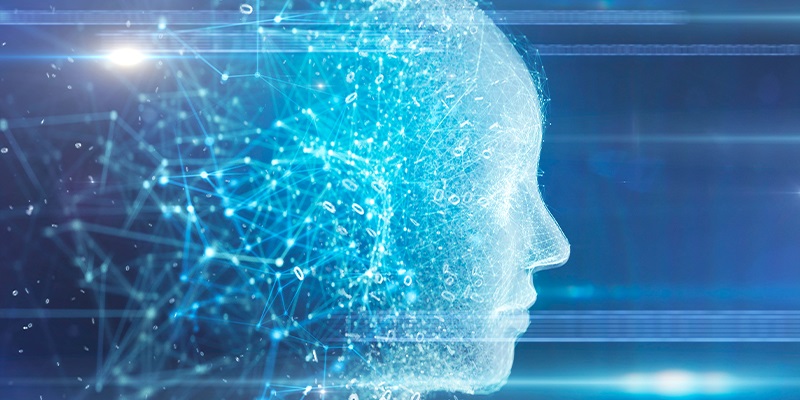Check Point® Software Technologies Ltd.(link is external) announced that U.S. News & World Report has named the company among its 2025-2026 list of Best Companies to Work For(link is external).
DevOps, as we know, started in 2008 and began taking structure in 2009 with Patrick Debois and Andrew Clay Shafer delivering their first speech in the DevOpsDays event held in Belgium
The entire objective of DevOps was to bring myriad cultural philosophies, practices, and tools under the same roof so that organizations could deliver applications, products, and services at high velocity — to better serve their customers and gain a competitive edge. However, in truth, adopting a DevOps approach, and to capitalize on its benefits, offers a multitude of concerns — it's easier said than done.
Ever since the conception, application development, as well as infrastructure ops communities, brought many DevOps related concerns to the surface, which have resulted in the burgeoning of several forms and stages to modularize DevOps.

Challenges of Implementing DevOps
While embarking on the DevOps journey, companies have to face a number of transformative challenges. First, they must change the workplace culture to embrace DevOps, which is a long-term process which also requires a lot of patience and endurance. Second, users need to deploy infrastructure as code along with microservices for quicker development along with sharp innovations. Moreover, they need to upgrade their hardware and software systems so that new systems can co-exist with the existing systems.
Even after embracing DevOps, organizations face challenges at every step. As the user goes traverses through stages like Agile, ArchOps, TestOps, DataOps, SRE, WinOps and SAFe, they tend to experiences hiccups that can be primarily classified into 8 categories:
1. Source code engineering
2. Environment engineering
3. Test engineering
4. Release engineering
5. Feedback and tracking
6. Rollback and resiliency
7. Transparency and visibility
8. Developments through center of excellence
All these entities have increased complexity in handling applications that have evolved, and data flow which has become stateless to stateful across various endpoints. The voluminous information produced in all these transactions causes many bottlenecks, which if not addressed in time leads to service disasters.
Best Ways to Overcome These Challenges
These implementation challenges can be resolved by:
■ Bringing automation wherever necessary.
■ Identifying the risks ahead of time and fixing errors before their occurrence.
■ Introducing transparency and collaboration across all stakeholders.
Apparently, automation underpins the resolutions mentioned above. One of the tools that can facilitate this is Artificial Intelligence (AI).
Artificial intelligence cannot only help DevOps users address various challenges but also identify security threats, detect data leaks, organize memory management, to name a few. Let us take a closer look at the role of artificial intelligence/machine learning technologies in transforming a DevOps environment.

Power of AI in DevOps
In the current digital transformation era, AI has taken the center stage as it allows organizations implement DevOps practices in the best possible way. It allows organizations embrace the change and build a culture around innovation, keeping motivations high. So, the friction experienced while adopting a DevOps mindset gets eliminated.
AI can bring a huge change in the way businesses handle their data. Users can deal with large volumes of data and easily integrate it into a unified place with AI-powered data mapping software for better data quality and improved decision-making. Whether data is in XML or JSON or any other format, AI mapping (AI Map) technology claims to leverage it without compromising speed or capital. Plus, the integrity remains intact as AI removes errors introduced by human intervention.
Almost all industries such as robotics, automotive and manufacturing rely on AI for simplifying product development cycles. In short, implementing AI not only promotes data integration and data integrity but also boosts product development and releases with quality and efficiency.
Perks of AIOps
Infusion of AI in DevOps aka AIOps allows organizations to savor many benefits. Here are some benefits that can be achieved:
■ Reduced fear of change and inspired workforce to drive innovation and growth.
■ Accelerated mapping and integration of myriad data from different sources to drive BI and decision-making.
■ Automatic integration of important components of technology in the construct of an application type to streamline build and release tasks.
■ Improved intelligent data analysis and error-fixing before the execution of release pipeline.
■ Simplified onboarding of application with any number of patterns.
■ Increased knowledge base on error fixes based on application and infrastructure historical data.
Simply put, artificial intelligence/machine learning-powered technologies can transform DevOps and maximize outcomes with ease and speed.
Industry News
Postman announced new capabilities that make it dramatically easier to design, test, deploy, and monitor AI agents and the APIs they rely on.
Opsera announced the expansion of its partnership with Databricks.
Postman announced Agent Mode, an AI-native assistant that delivers real productivity gains across the entire API lifecycle.
Progress Software announced the Q2 2025 release of Progress® Telerik® and Progress® Kendo UI®, the .NET and JavaScript UI libraries for modern application development.
Voltage Park announced the launch of its managed Kubernetes service.
Cobalt announced a set of powerful product enhancements within the Cobalt Offensive Security Platform aimed at helping customers scale security testing with greater clarity, automation, and control.
LambdaTest announced its partnership with Assembla, a cloud-based platform for version control and project management.
Salt Security unveiled Salt Illuminate, a platform that redefines how organizations adopt API security.
Workday announced a new unified, AI developer toolset to bring the power of Workday Illuminate directly into the hands of customer and partner developers, enabling them to easily customize and connect AI apps and agents on the Workday platform.
Pegasystems introduced Pega Agentic Process Fabric™, a service that orchestrates all AI agents and systems across an open agentic network for more reliable and accurate automation.
Fivetran announced that its Connector SDK now supports custom connectors for any data source.
Copado announced that Copado Robotic Testing is available in AWS Marketplace, a digital catalog with thousands of software listings from independent software vendors that make it easy to find, test, buy, and deploy software that runs on Amazon Web Services (AWS).
Check Point® Software Technologies Ltd.(link is external) announced major advancements to its family of Quantum Force Security Gateways(link is external).
Sauce Labs announced the general availability of iOS 18 testing on its Virtual Device Cloud (VDC).




